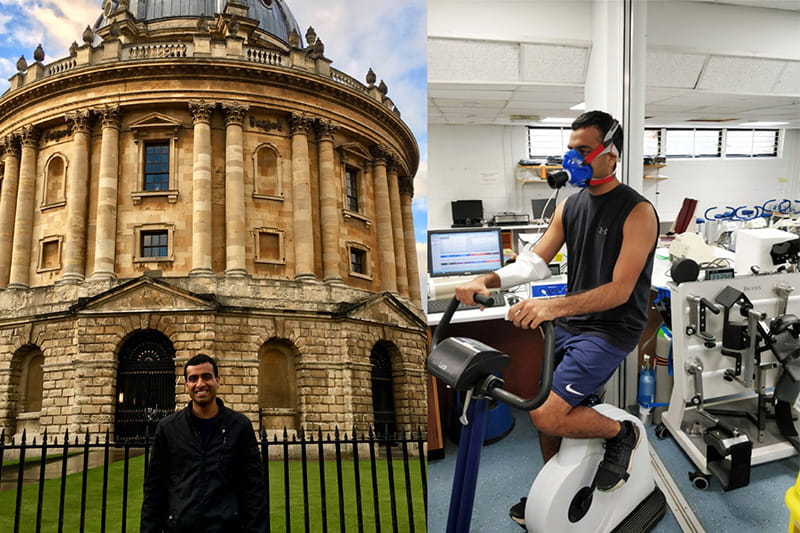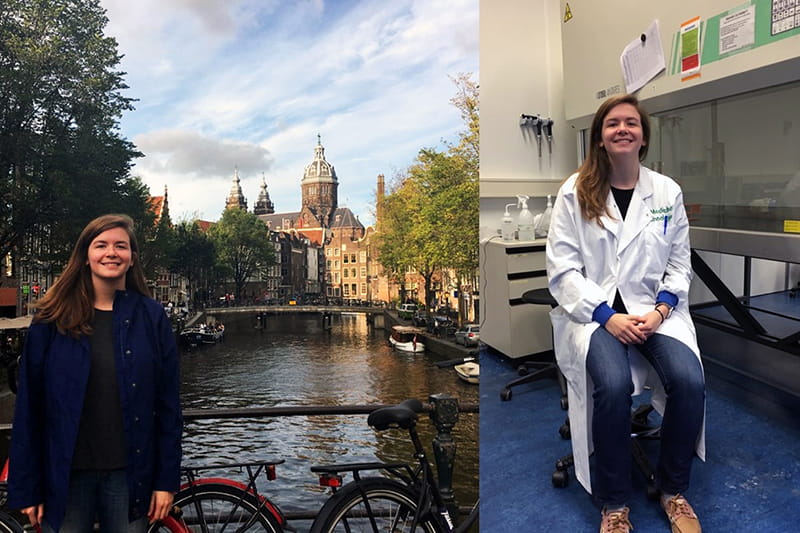Everything Dragons Should Know About Applying for a Fulbright This Year

Can you see yourself, or do you aspire to, travel the world as part of your post-undergraduate experience? How about conducting a research project abroad, or teaching English as a second language? Would you be a good representative of the U.S. while also becoming immersed in a culture which may be very different from your own?
If you can see yourself doing these things for a year in one of 140 countries worldwide, it’s time to start considering an application for the Fulbright U.S. Student Program which offers grants to study, teach and conduct research abroad for U.S. citizens. The student program is one of several programs under the umbrella of the U.S. Department of State’s Fulbright Program.
Drexel University staff of the newly rebranded Undergraduate Research & Enrichment Programs (UREP) in the Pennoni Honors College— a merger of the former Office of Undergraduate Research and Center for Scholar Development — are ready to help guide Dragons looking toward graduation and beyond to put together a successful application, as well as provide guidance, mentorship and feedback along the way.
What goes into that application? When should you start working on it? Who are successful Fulbright applicants? How has the program been affected by the pandemic? Kelly Weissberger, associate director of UREP, answered these questions and more in an interview with DrexelNow.
Here’s the how’s, who’s, when’s and why’s to consider on the road to a Fulbright this year:
How
If you’re considering a Fulbright application, you’re joining a long lineage of Dragons before you. Over the past five years, 112 Drexel affiliates have submitted applications, including a surge of 33 applicants last spring right at the onslaught of the COVID-19 pandemic. Weissberger said this may have been due to increase and ease of recruitment after coming together under UREP, as well as perhaps more students becoming interested in fellowships due to the uncertain job market. Either way, they are hoping to keep up that trend this year, Weissberger said, as even the mere process of applying can be very valuable.
“You reflect, your writing gets stronger, you learn a lot about yourself. It's not just about the award you're applying for, but the experience of applying for a fellowship helps you grow and learn so much about yourself,” she said. “It's really transformative. You develop kind of an elevator pitch for yourself and know how to how to brand yourself or talk about yourself really succinctly and eloquently.”
Putting together an application involves a number of moving parts, including two one- to two-page essays, three recommendations, academic transcripts, and additional materials as needed. These materials may range from a portfolio, proof of language proficiency, a letter of affiliation from a collaborator in the country you’re applying to, and more. Though it may sound like a lot, these are all materials Weissberger and her colleagues are prepared to help students pull together, as well as an official endorsement from the University, which is required for current students and recommended for alumni.
“The bulk of what we do is support students through drafting and then revising and revising and revising that application many times,” she said.
Who
One of the things Weissberger loves about the Fulbright program — herself being an alum who taught English in Bosnia and Herzegovina — is that it is wide open to students and academics in almost any field. Though there are constraints regarding citizenship and when in one’s academic journey it is most acceptable to apply (“You have to be between your bachelor's and doctorate, essentially,” Weissberger said). Applicants to the Fulbright U.S. Student Program can be senior undergraduates, current graduate students, or alumni. She’s seen students from all disciplines and majors over the years go on to become strong candidates.
“The most important thing is that they are qualified to do the things they want to do for Fulbright,” she said.

There are different qualification considerations for each of the three types of Fulbright grants. For research grants, that means demonstrating experience in designing a full-time research project that lasts for a full year. For applicants seeking graduate study grants, they should be able to explain why they want to pursue a particular degree program abroad as opposed to in the U.S., and why it’s a good fit for their interests and trajectory.
Language proficiency may be required for grants in certain countries, and for English teaching assistant grants, some countries may prefer applicants have certain teaching experience or certification.
But one requirement carries through to all Fulbright grants, according to Weissberger.
“The State Department is really interested in citizen diplomacy. They want to select a cohort of scholars or grantees who are going to be good representatives of the U.S. abroad, who are going to be really interested in getting to know locals in their host community and building relationships and kind of sharing their experience of what it means to be America and what Americanness is,” she said. “Conversely, learning about the host country and what life there is really like and the complications and nuances of the culture beyond just what they learned by reading about it.”
Their ultimate goal, Weissberger said, is for Fulbright scholars to help build relationships and bridges between the U.S. and the host countries.
When
If this is all sounding good to you so far, then it’s almost time to get down to business if you’re gearing up to apply for a grant this year.
Fulbright applications for this year open on March 31, and the deadline is Oct. 12. This may sound like a long timeline, but Weissberger stresses that it’s important to get started early.
“It's by far our biggest award and it has probably the longest timeline,” she said. “Most other awards, we don't work with students for that long and that extensively.”
Start off by joining an information session which also kicks off the support process with UREP staff. This is important to do early on in the application timeline, Weissberger said, to get a head start on application requirements that may take a while to see through.
“The research and some of the study grants, they require an affiliation, which means a connection in the host country — someone they're going to work with and collaborate with in some way on their project. That can take a long time to find,” she said. “If you don't already have a connection, you're basically cold calling people in another country saying, ‘Hey, you don't know me, but I'd really like to come work with you for an entire year and collaborate on a research project.’ It takes a long time to have that conversation and establish that connection and get someone to agree.”
Why

Another reason to start early is also a big “why” for considering the Fulbright program. Weissberger said it’s important to be open and think about applying in areas of the world you may not have initially considered.
“Fulbrights vary in their level of competitiveness a lot. The ones in Western Europe are very, very competitive, but grants in central Asia or sub-Saharan Africa tend to be way less competitive,” she said. “There are some fantastic places you can go that you probably have never thought about or read about.”
Another “why” for this year is the exciting probable re-establishment of these international exchanges following disruptions created by the pandemic. Though most grantees who were abroad last year ended up returning home to the U.S., many who were scheduled to depart last fall have been able to defer the opportunity to this year. The hope is that by the time this year’s applicants are ready to pack their bags, COVID-19 will no longer be a huge consideration.
“Fulbright staff have assured us that this coming application cycle that's about to open, things should be back to normal,” Weissberger said. “They will all depart in fall 2022 or later. So, fingers crossed that the world is back to normal.”
If you have questions or would like to get started on your Fulbright application process, email fellowships@drexel.edu.
In This Article
Drexel News is produced by
University Marketing and Communications.

